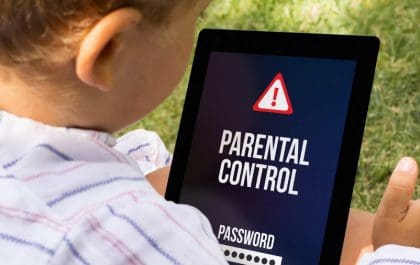By Jeff Comas
In my 25+ years as a music educator I have never met a single person who says they regret being able to play a musical instrument. On the flip side I have met many people that tell me they wish they had learned to play music when they were young, or that they wish they had never quit playing music. Music is an integral part of the human experience. It can sooth us, it can excite us, and it can even help us express what words cannot. We seem to be born wired for music. Most of us have seen little babies that cannot even talk yet, but they can groove/dance to music.
Aside from the nearly universal love of music we seem to have, the study of music has been linked to many positive benefits for the mental development of children (adults too). Numerous scientific studies show multiple advantages of learning to play a musical instrument. In fact these studies show that music students outperform their non-musical peers in subjects such as math, language, and science.
…the study of music has been linked to many positive benefits for the mental development of children (adults too).
Additionally, music students seem to have better social skills and more confidence in public presentation situations (i.e. public speaking & other public performances).
Below is a list of 15 reasons to study music.
1. Boost Brain Power
Music stimulates the parts of the brain that are related to reading, math, and emotional development.
2. Improved Memory
The patterns and sequences of music improve memory skills.
3. Improved Social Skills
Working with teachers and other music students helps musicians learn about teamwork & cooperative action.
4. Build Confidence
As a musician’s skills improve with practice, so does their self -confidence. Musicians who participate in performances like recitals will become more comfortable in other public situations, too. (BTW our academy hosts two recitals every year)
5. Constant Learning
The subject of music is so broad that nobody can know all there is to know, so there is always something else to learn. (This is why the love of playing music can last a lifetime)
6. Expression
Music can express emotional nuances for which there are no words.
7. Discipline
To learn music one must be persistent and continuously work outside of the classroom.
8. Creativity
The act of playing music is a creative activity. Playing music teaches us to think creatively and builds problem-solving skills.
9. Spatial-Temporal Reasoning Skills
Music training has been shown to improve one’s ability to read maps, put puzzles together, form mental images, transform/visualize things in space that develop over time, and recognize relationships between objects. (These skills are helpful in science and math)
10. Understanding Abstract Symbolisms
Musical symbols expand the range of abstract symbols (like numbers and letters) that students are exposed to.
11. Logic Skills
The rhythm of music utilize fractions, ratios, and proportions, which are all important to the logic of math.
12. Improve Motor Skills
Performing music helps the brain learn the body’s neural network, which assists motor development, especially coordination of hands and eyes.
13. Improve Diction Skills
In vocal music learning rhythm, phrasing, and pitch greatly enhances language, pronunciation, grammar, and vocabulary skills.
14. Decision Making
When musicians learn improvisation they must make a series of rapid decisions based on anticipation of what is about to happen.
15. Listening Skills
Music students quickly learn that careful listening increases their rate of learning. A few other things to think about:
Students who play instruments are more likely to stay in school longer. You can play music your whole life, and it exercises more of your brain than any other activity.
So, should your child learn to play music? I think the answer is pretty obvious, but I’ll let you decide. I rest my case.
Jeff Comas started playing music at 5 years of age. He has been a music educator since 1989, and has given over 40,000 music lessons.
Related posts
Newsletter Subscribe
Newest Posts
Set Up a Parental Control for Online Safety
Have you ever wondered how long your children spend in front of a device without your supervision? Yes, it is…
Adopt A Life, Save A Life
By Jeff Ashin, CEO, Young-Williams Animal Center. Photo by: Young-Williams Animal Center Are you or your child thinking of adding…

